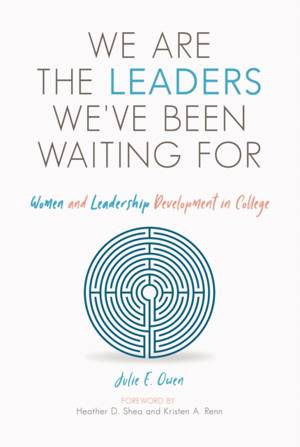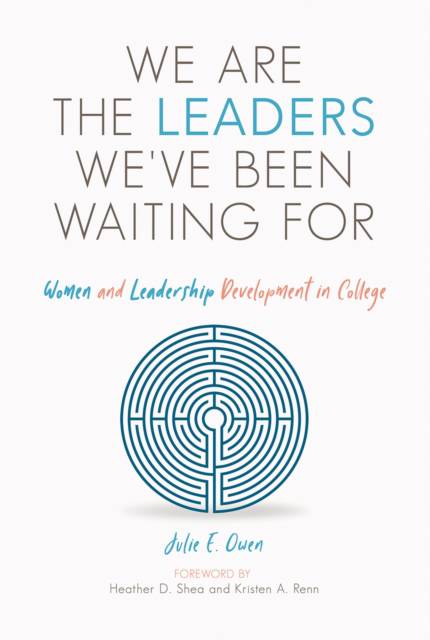
- Retrait gratuit dans votre magasin Club
- 7.000.000 titres dans notre catalogue
- Payer en toute sécurité
- Toujours un magasin près de chez vous
- Retrait gratuit dans votre magasin Club
- 7.000.0000 titres dans notre catalogue
- Payer en toute sécurité
- Toujours un magasin près de chez vous
We Are the Leaders We've Been Waiting for
Women and Leadership Development in College
Julie E OwenDescription
At this time of social flux, of changing demographics on campus and the world beyond, of recognition of intersectional identities, as well as the wide variety of aspirations and career goals of today's women undergraduates, how can colleges and universities best prepare them for the demands of modern leadership? This text speaks to the changing context of today's women students' experiences, recognizing that their work life goals may go beyond climbing the corporate ladder to include social innovation and entrepreneurial goals, policy and politics, and social activism.This book is a product of multiple collaborations and intellectual contributions of a diverse group of undergraduate and graduate women who helped shape the course on which it is based. They provided research support, critical readings, as well as the diverse narratives that are included throughout the book, not as an ideal for readers to aspire to but as an authentic expression of how their distinct and sometimes non-conforming lived experiences shaped their understandings of leadership. It goes beyond hero/she-ro person-centered approaches to get at the complex and intrapersonal nature of leadership. It also situates intersectional identities, critical consciousness, and student development theory as important lenses throughout the text.Recognizing that there are many possible manifestations of leadership or gender, this text encourages students to embrace the contradictions rather than engaging in dualistic, black-and-white thinking, challenging them to address such questions as, Should women "lean in" and work harder to achieve their own leadership goals, or should they focus on bigger systemic issues to create equity in the workplace?Each chapter concludes with a brief chapter review, a narrative from a current college student, and critical reflection questions.
Spécifications
Parties prenantes
- Auteur(s) :
- Editeur:
Contenu
- Nombre de pages :
- 252
- Langue:
- Anglais
Caractéristiques
- EAN:
- 9781642670080
- Date de parution :
- 15-05-20
- Format:
- Livre relié
- Format numérique:
- Genaaid
- Dimensions :
- 157 mm x 231 mm
- Poids :
- 430 g

Les avis
Nous publions uniquement les avis qui respectent les conditions requises. Consultez nos conditions pour les avis.






